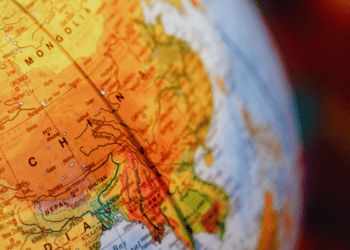Writing in the Globe and Mail about the upcoming Supreme Court decision on Canada’s prostitution laws, MLI senior fellow Benjamin Perrin says that while the status quo is ineffective, decriminalization or legalization of prostitution “has been a flawed social experiment in numerous countries.” He recommends that Canadian laws be changed to protect women and punish traffickers, pimps and johns.
Benjamin Perrin, Dec. 18, 2013
The Supreme Court of Canada will render its decision this Friday on a high-profile Charter challenge to Canada’s prostitution laws. Whatever the outcome, it’s likely to spur a heated national debate. It is high time for a change – but not one that would legalize or normalize prostitution. Instead, a new approach is needed with the aim of ending prostitution.
The applicants in Canada v. Bedford are seeking a declaration that three prostitution-related offences in the Criminal Code are unconstitutional. If they have their way, it would be legal to operate brothels throughout Canada, publicly communicate sex acts for sale, and enable third parties to profit from the flesh trade. Their argument is not about sexual liberation – it is about legitimizing the sale of women for sex in our society, which is inherently harmful.
Studies by the Library of Parliament and the House of Commons Standing Committee on Justice and Human Rights paint a bleak picture:
– Street-level prostitution represents just 5-20 per cent of all prostitution, the rest occurs indoors – out of sight, out of mind;
– The majority of prostitutes start between 14 and 20 years of age;
– A disproportionate number of prostitutes were sexually abused as children;
– Substance abuse is significant among street prostitutes; and
– Marginalized women, including Aboriginal women, are particularly vulnerable to prostitution and more likely to face violence (including assaults, sexual assaults, and murder).
Prostitution creates a second class of women – disproportionately disadvantaged women and underaged girls that can be bought and sold. The fact that most enter as minors, were sexually abused as kids, and many are Aboriginal is haunting. Legalizing prostitution would legitimize their sexual exploitation by men.
The status quo has been criticized from multiple quarters as ineffective and convoluted. Numerous Parliamentary committees have pointed out flaws – in one year, 92 per cent of those charged with communicating for the purpose of prostitution were female (i.e. prostitutes – the same report found that almost all “clients” are male). Among the few men that were charged, 70 per cent had their charges withdrawn or stayed – whereas among women charged, 68 per cent were convicted.
On the other hand, decriminalizing/legalizing prostitution has been a flawed social experiment in numerous countries. Where such an approach has been taken, the most vulnerable form of prostitution (e.g. street-level) has generally persisted. A large illegal prostitution sector also inevitably thrives: between 50 and 75 per cent of prostitution occurs outside of the legal sectors in the Netherlands and the State of Queensland in Australia, respectively. Germany found no measurable improvements for prostitutes post-decriminalization. Violent pimps caused Amsterdam to close vast sections of its infamous red light district. Officials in the Dutch city of Utrecht even experimented with converting 14 outdoor parking stalls into trick pads by dividing them with concrete blocks. Is this what women’s equality looks like?
Canada should overhaul its prostitution laws, within the constitutional parameters to be set by the Court. The starting point for such an approach could consist of three key components, inspired by an abolitionist model developed by Sweden and since adopted by other countries. The evidence from an independent inquiry is that such a model is working to reduce prostitution, change public attitudes, and undermine criminal elements and sex trafficking.
First, Canada’s objective should be to abolish prostitution. Its harms are inherent and cannot simply be regulated away. Second, prostitutes themselves should not be criminalized, but given support to help them exit. Leaving prostitution is the only way to truly protect prostitutes. In most provinces, this intensive assistance is sorely lacking. It has been suggested that the perpetrators of prostitution (e.g. “johns” and “pimps”) should pay substantial fines that could be used to fund such services. There is merit in exploring this idea further. Finally, our criminal laws and enforcement should instead target pimps, traffickers, and “johns” with enhanced penalties – they are the perpetrators responsible for the harms of prostitution.
The debate about Canada’s approach to addressing prostitution has been working its way through the courts for years. On Friday, it will shift back to Canadians and our elected officials. Our country has an opportunity to join a growing number of others that reject the defeatist idea that prostitution should simply be accepted; instead our goal must be to work to abolish it.
Benjamin Perrin is a law professor at the University of British Columbia and a senior fellow at the Macdonald-Laurier Institute. He is the author of a forthcoming report on reforming Canada’s approach to addressing prostitution.




